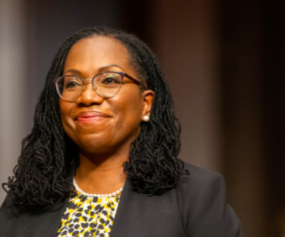“It’s almost embarrassing, look at California doing this and you’ve got Mississippi, Georgia who can’t do anything,” said Dianne Stewart, Ph.D., African-American studies professor at Emory University of California’s Reparations Task Force decision on who gets reparations among Black California residents.

“Black is a self-selecting category on the census, anyone can select Black,” said Kamilah Moore, Chair of the California Reparations Task Force. Moore voted in favor of a lineage-based standard or the equivalent of to the one-drop rule, for Black California residents with family lineage tracing back to an enslaved descendant in the 19th century, but the implications of reparations are being felt far beyond the Golden State.
“It’s important because whatever California does with its prestige in this country is going to affect how other states act,” said Joyce Hope Scott, professor of African-American studies at Boston University.
Hope Scott has dedicated her entire career to the study and advocacy of reparations, she says one thing is for certain when it comes to what is and isn’t reparations.
“I will say, flat-out, straight-out, a check, a one-time payment is not doing it,” Hope Scott said.
Hope Scott says the harms associated with slavery are so deeply rooted, a simple paycheck won’t be enough to repair the harms felt by generations of African-Americans who are still suffering from systemic racism today.
“It’s about the fact you have a group of people who not only suffered slavery but landlessness, not just because they weren’t given any by compensation but by terrorist acts that were never litigated,” Hope Scott said.
Hope Scott believes real forms of reparations include more tangible efforts that impacts property and wealth building. “The bane of wealth disparity between Blacks and whites because they started out with no land.
Not only did they not start out with no land or homes, the land and nearly 16 million acres they did acquire over the course of time after slavery was taken away from them by scurrilous means by governmental acts and so on and so forth,” Hope Scott said.
Read full story at Atlanta Black Star here.




